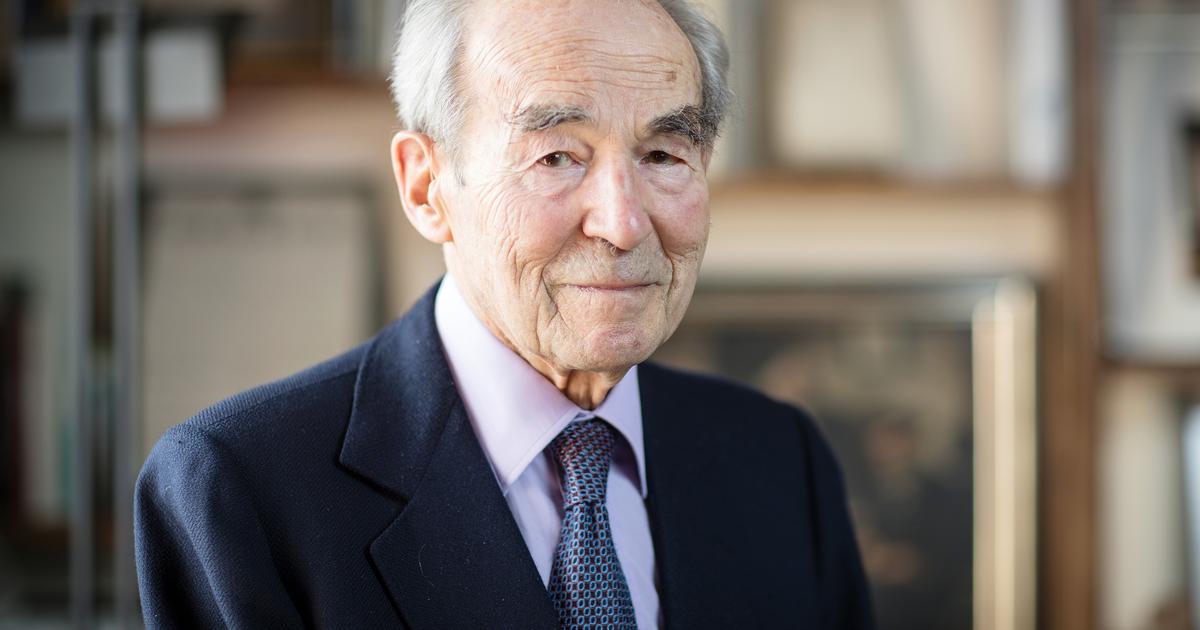It was in a Bernard Pivot program that Robert Badinter, for the first time, argued against the death penalty.
On June 25, 1973, he was invited to
Ouverture les guillemets
on the occasion of the release of his book
L'execution.
In this very personal work, republished several times, he develops a cause dear to his heart: his reflections on the profession of lawyer and his feeling of injustice after one of his clients, Roger Bontems, was guillotined for a murder he did not commit.
It is also in another program by Bernard Pivot
Bouillon de culture
, in 1995, that he talks about his afterlife.
“If God exists, what would you like to hear from Him?
»,
asks the host.
After a moment of reflection, he responds, smiling,
“You did what you could!”
»
.
He thus concludes a tit-for-tat questionnaire where he responds to Pierre Perret and Jean-Jacques Pauvert, and demonstrates that he does not lack humor.
A sequence that Madelen invites you to discover or rediscover.
Between two pleadings where each word was worked on, weighed to the extreme, Robert Badinter showed on the small screen, another of his qualities that he cultivated in private: the sense of self-deprecation.
On June 14, 1970, he took part in the show
L'invite du Dimanche
, presented by Pierre Bouteiller and dedicated to Jules Dassin.
He tells how the director became his first client.
Two weeks after opening his office, his waiting room remains desperately empty.
Jules Dassin arrives one morning, somewhat by chance.
A producer he worked with some time ago owes him a lot of money.
He admits, from the outset, that he cannot afford a lawyer.
“I didn't have any money either, so we were made to get along
,” confides Robert Badinter who agrees to voluntarily defend the victim's cause.
He specifies that he lost the trial, which did not prevent the birth of a long friendship.
Read alsoA Gironde high school soon to be named in homage to Robert Badinter
One night review
Robert Badinter not only knew the penal code in every detail.
He had many other passions, starting with theater, cinema and history.
Pierre Barillet, author with Jean-Pierre Grédy of Jacqueline Maillan's most famous comedies, was a very close friend of the family.
The 7th
Art
in all its forms has also marked its long career.
In 1970, still on television, in the show
Pour le cinéma
, he acted as one-night critic by saying, in front of Jean-Pierre Melville and Jean Ferniot, all the good things he thought of the Walt Disney cartoon
The Jungle Book
.
“I found it absolutely charming.
We're happy when we leave, and we don't kill the tiger, which made me happy
,” he says.
He finally demonstrated that he could be as comfortable in the past as in the present during a program offered in 1969 by Roland Darbois, actor and screenwriter.
He played the role of attorney general in a trial-style debate around the theme, “Was Napoleon the continuation of the French Revolution or did he slow down its development?”
".
Facing one of his colleagues, Robert Schmelk, attorney general at the Court of Cassation, and Jean Foyer, former Minister of Justice, he developed the arguments put forward by the prosecution, in this evening produced live with, from time to time to another, questions asked by the public from ORTF regional stations.
The result was three hours of debate before the verdict and a success at the hearing that critics hailed the next day, specifying that it was only justice.

